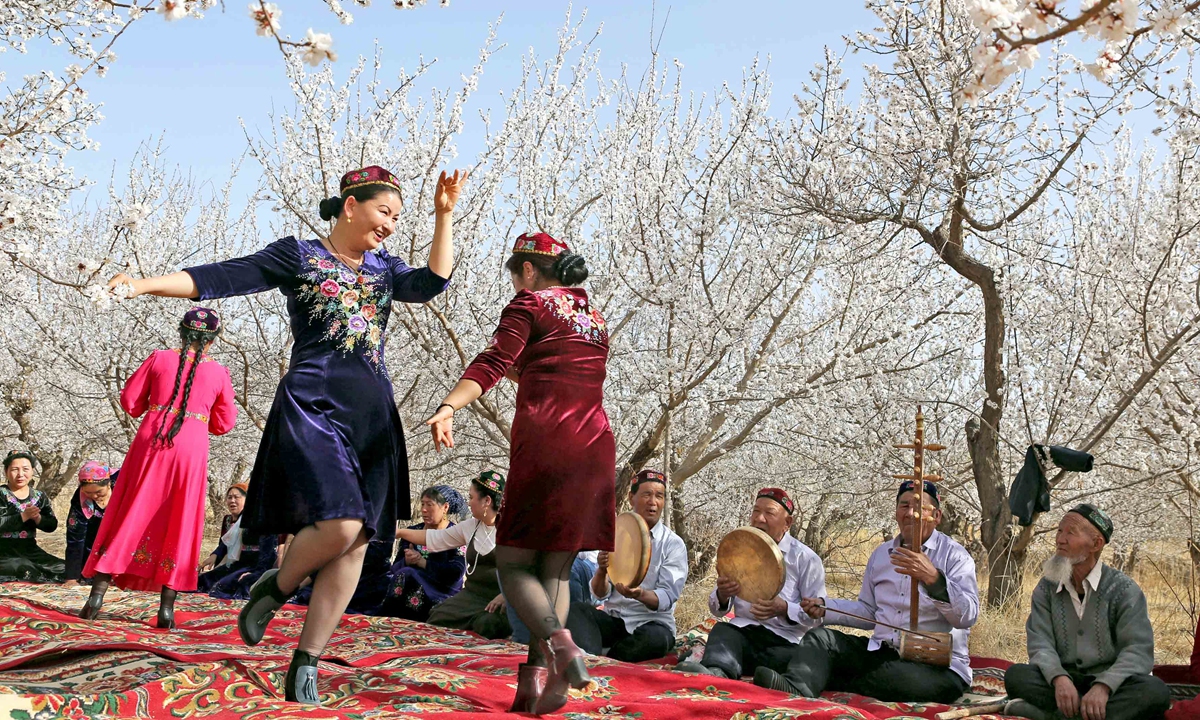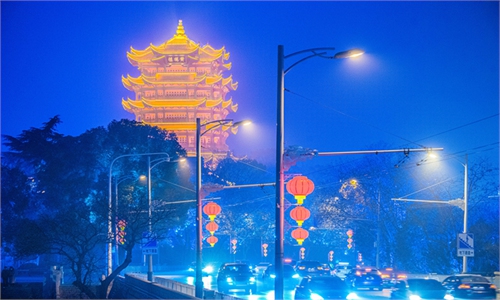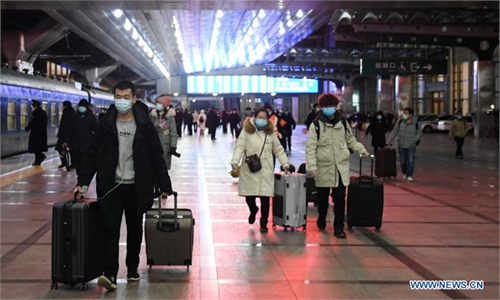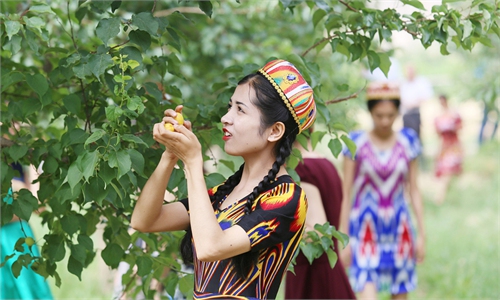
People are holding a Meshrep, a traditional Uygur community gathering, in Hami city of Xinjiang. Photo: IC
BBC News published a highly sensational report Wednesday alleging that large numbers of Uygur women have been "systematically raped, sexually abused, and tortured" in the vocational education and training centers in China's Xinjiang Uygur Autonomous Region, where "the rape has become a culture." The report quoted Uygur women now living in the West, describing horrific conditions, without any evidence beyond those descriptions.Chinese scholars familiar with Xinjiang affairs, including those who live and work in Xinjiang, felt the accusations were preposterous when the Global Times asked them to comment. Such mass rapes and sexual assaults have no place in today's China, and such collective audacity is unbelievable. The chance of such a crime being concealed is zero. Those who commit such evil crimes would have faced the intolerable risk of severe punishment or even death penality, so no one in China would believe that the BBC's allegations have any basis in fact.
Many people have migrated to foreign countries from Xinjiang. Radical organizations such as the World Uyghur Congress and Western media outlets obviously want to use them to fabricate shocking stories about Xinjiang's governance. Bizarre stories have emerged in an endless stream. We have reason to doubt that overseas anti-China forces instigated those story-tellers to concoct tales. Western public opinion has formed a "story production chain" to viciously smear Xinjiang issues.
The BBC report has seriously violated journalistic ethics. How can it publish a story rashly claiming "crimes of near anti-humanity level" were committed in China, only citing oral dictations without any verification? Who taught the BBC reporters that they are not responsible for the authenticity of their reports and that they should only cater to the favor and imagination of Western readers?
Some media outlets are forcing the Xinjiang regional government to offer proof to refute rumors by cooking up a story and spreading it. Such behavior is extremely vicious. The rumors they created are mostly vague. For instance, BBC said Uygurs at local vocational education and training centers "have been systematically raped, sexually abused, and tortured." What kind of proof can support the arguments mentioned above?
The Xinjiang regional government has debunked some rumors. For example, Western media claimed that some Uygurs were persecuted to death, but it turns out they are living a good life in Xinjiang. If they named names, the noise can be clarified. But in most cases, it takes only a minute to start a rumor, but unlimited time and effort to refute it.
Almost all BBC and other Western media reports on Xinjiang affairs are false accusations. They make up an allegation first and then seek sensational material to fill in the stories. Xinjiang has made great efforts to combat terrorist and violent activities and restore order. It has achieved peaceful and stable reconstruction, restored the normal lives of people of all ethnic groups there. The political goodwill and responsibility of those in power are behind it. However, such efforts are smeared as "genocide" by Western public opinion. Those reports are actually anti-humanity.
Given its reports on Xinjiang, the BBC has been acting no more as a traditional media outlet of the West, but it is more like a fortress in the media war against China controlled by Western intelligence agencies. Stigmatizing China, mobilizing Westerners to confront China, and distorting developing countries' knowledge of China have become the political goal of BBC's reports on China.
China is nothing like the country in the mouth of Western media elites. The BBC reporters have described China as a living hell while the West is the paradise of human rights. Don't they feel ashamed if they take a look at how differently China and the UK have guaranteed humanitarianism amid the COVID-19 pandemic? What have they done to their common sense and perception?
It is hoped that media professionals of the BBC and other Western outlets who made up the "Xinjiang myth" can stop moral narcissism. It is hoped that they can be brave enough to break the iron curtain forged by themselves and politicians, and regain the basic qualities of a media professional: to be objective and seek truth from facts.



